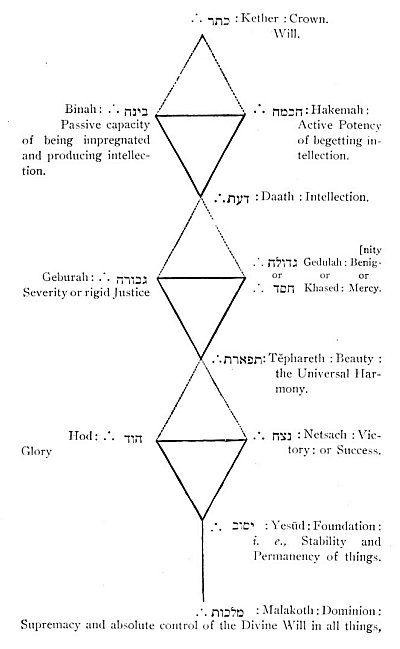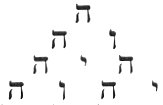p. 603
which represented the Deity coming forth out of the incomprehensible mystery of His nature, and revealing Himself at those critical epochs which either in the physical or moral world seemed to mark a new commencement of prosperity and order. Combating the power of Evil in the various departments of Nature, and in successive periods of time, the Divinity, though varying in form, is ever in reality the same, whether seen in useful agricultural or social inventions, in traditional victories over rival creeds, or in physical changes faintly discovered through tradition, or suggested by cosmogonical theory. As Rama, the Epic hero armed with sword, club, and arrows, the prototype of Hercules and Mithras, he wrestles like the Hebrew Patriarch with the Powers of Darkness; as Chrishna-Govinda, the Divine Shepherd, he is the Messenger of Peace, overmastering the world by music and love. Under the human form he never ceases to be the Supreme Being. “The foolish” (he says, in Bhagavad Ghita), “unacquainted with my Supreme Nature, despise me in this human form, while men of great minds, enlightened by the Divine principle within them, acknowledge me as incorruptible and before all things, and serve me with undivided hearts.” “I am not recognized by all,” he says again, “because concealed by the supernatural power which is in me; yet to me are known all things past, present, and to come; I existed before Vaivaswata and Menou. I am the Most High God, the Creator of the World, the Eternal Poorooscha (Man-World or Genius of the World). And although in my own nature I am exempt from liability to birth or death, and am Lord of all created things, yet as often as in the world virtue is enfeebled, and vice and injustice prevail, so often do I become manifest and am revealed from age to age, to save the just, to destroy the guilty, and to reassure the faltering steps of virtue. He who acknowledgeth me as even so, doth not on quitting this mortal frame enter into another, for he entereth into me; and many who have trusted in me have already entered into me, being purified by the power of wisdom. I help those who walk in my path, even as they serve me.”
Brahma, the creating agent, sacrificed himself, when, by descending into material forms, he became incorporated with his work; and his mythological history was interwoven with that of the Universe. Thus, although spiritually allied to the Supreme, and Lord of all creatures (Prajapati), he shared the imperfection and
p. 604
corruption of an inferior nature, and, steeped in manifold and perishable forms, might be said, like the Greek Uranus, to be mutilated and fallen. He thus combined two characters, formless form, immortal and mortal, being and non-being, motion and rest. As Incarnate Intelligence, or THE WORD, he communicated to man what had been revealed to himself by the Eternal, since he is creation’s Soul as well as Body, within which the Divine Word is written in those living letters which it is the prerogative of the self-conscious spirit to interpret.
The fundamental principles of the religion of the Hindi’s consisted in the belief in the existence of One Being only, of the immortality of the soul, and of a future state of rewards and punishments. Their precepts of morality inculcate the practice of virtue as necessary for procuring happiness even in this transient life; and their religious doctrines make their felicity in a future state to depend upon it.
Besides their doctrine of the transmigration of souls, their dogmas may be epitomized under the following heads: 1st. The existence of one God, from Whom all things proceed, and to Whom all must return. To him they constantly apply these expressions–The Universal and Eternal Essence; that which has ever been and will ever continue; that which vivifies and pervades all things; He who is everywhere present, and causes the celestial bodies to revolve in the course He has prescribed to them. 2d. A tripartite division of the Good Principle, for the purposes of Creation, Preservation, and Renovation by change and death. 3d. The necessary existence of an Evil Principle, occupied in counteracting the benevolent purposes of the first, in their execution by the Devata or Subordinate Genii, to whom is entrusted the control over the various operations of nature.

Moe is the founder of GnosticWarrior.com. He is a father, husband, author, martial arts black belt, and an expert in Gnosticism, the occult, and esotericism.






